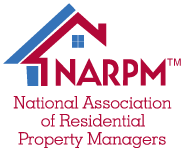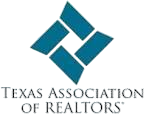Houston landlords expect repairs and rent turns, not a 7 a.m. knock from Code Enforcement. One complaint about noise, junk cars, or overgrowth can snowball into fix-it orders, city cleanups billed to you, liens, or even a judge’s injunction.
The difference between a blip and a budget bomb? Systems. In minutes, you’ll see how to spot risks early, respond fast, and keep cash flow and deals on track.
Key Takeaways
- Enforcement is proactive. Houston responds to complaints and visible conditions before any court case.
- Owners are accountable. Abatement costs and liens typically attach to the property owner, regardless of who caused the problem.
- Noise is a frequent trigger. The city sets specific decibel limits and can issue fines, hold hearings, and revoke sound permits.
- Crime-linked properties face lawsuits. Persistent criminal activity can lead to civil nuisance actions seeking injunctions or, in extreme cases, closure by court order.
- Mitigation is doable. Tight leases, scheduled inspections, fast responses, and documentation reduce exposure.
What “Nuisance” Means in Texas
In Texas, nuisance is a legal injury, defined as a substantial interference with the use and enjoyment of land. Think persistent noise, unsafe or unsanitary conditions, or activity that endangers health and safety. You don’t need a criminal conviction to have a nuisance; it’s about the condition and its impact.
City Authority and How Cases Start
Houston’s code identifies neighborhood nuisances and empowers the city to issue notices, require remediation, and, if necessary, perform abatement and bill the owner. Those charges can be secured with a lien that follows the property, complicating refinancing or sale until the lien is cleared.
Timing matters. The deadline to make a change comes from the notice you receive. If the city performs the abatement, the owner typically has 30 days after the abatement to request a hearing about the action and costs.
For specific emergency corrective actions, you generally have 30 days to request an administrative hearing. The point: don’t assume a universal “30 days to fix” rule, read the notice and calendar the correct date.
FAST coordination. Houston Police Department’s (HPD) FAST (Forfeiture, Abatement & Seizure Team) works with city attorneys on chronic problem locations. When voluntary compliance fails, the civil route opens.
Noise: the Day-to-Day Hot Spot
Houston’s noise rules set decibel limits measured at the receiving property (commonly 65 dB daytime/58 dB nighttime for residential; different thresholds apply in nonresidential contexts). Outdoor amplified sound near residences generally requires a permit.
Violations can result in fines of up to $2,000 per offense, and persistent offenders may face hearings and have their permits revoked.
Noise generates large volumes of complaints, so even well-run properties should treat it as an operational priority.
Practical playbook: Encourage quiet hours in leases, control outdoor speakers, and add door sweeps and weatherstripping to minimize noise. Maintain mechanical systems to reduce humming, and verify vendor equipment and event plans against the ordinance.
Crime-linked “Common Nuisance” Suits
For properties tied to recurring criminal incidents, the city can bring a civil “common nuisance” case seeking injunctions. Courts may impose conditions or operational changes; in severe situations, judges can order temporary closure.
While the conduct may come from tenants or visitors, owners and managers are frequent targets because they “maintain” the place and can implement corrective measures.
What courts expect: evidence you acted, security lighting, camera coverage, access controls, trespass agreements, coordination with police, and swift lease enforcement. Inaction invites more potent remedies.
What This Means for Investors
Unbudgeted Capex & Cash Calls. If you defer maintenance, orders to repair worn-out structures, remove junk accumulation, or control overgrowth can be expensive. Miss deadlines, and the city may do the work and send the bill, with administrative costs added.
Fines & Legal Exposure. Code violations generally carry tiered fines; noise offenses can reach $2,000 per count. Civil actions add attorney time, discovery, and potential operational restrictions.
Tenant Disruption & Vacancy. Visible code activity or police presence can harm a reputation, lengthen wait times, and necessitate temporary relocations during repairs.
Insurance & Lending. Carriers and lenders scrutinize violation histories and liens. Expect higher premiums, covenants to cure, or delayed closings until items are cleared.
Administrative Load. Coordinating inspectors, contractors, hearings, and counsel is a significant operational expense, especially across multiple sites.
Mitigation that Actually Works
- Lease architecture. Prohibit excessive noise, illegal activity, junk vehicles, and exterior clutter. Make city code compliance a tenant's responsibility. Reserve reasonable inspection rights and outline cure/charge-back processes.
- Scheduled inspections. Quarterly exterior and common-area walks identify vegetation, lighting failures, trip hazards, pest harborage, and vandalism before they escalate into violations.
- Rapid response SOP. Route 311 or neighbor complaints to a single queue. Dispatch within 24–48 hours, log photos “before and after,” and upload invoices. Keep a violation tracker with deadlines and responsible parties.
- Security at hot spots. Layer lighting, sightlines, and access control. Utilize cameras equipped with retention policies and incident tagging capabilities. Collaborate with law enforcement on trespass affidavits as needed.
- Documentation discipline. Suppose you receive a notice, calendar compliance, and any hearing window immediately. Keep correspondence, permits, and contractor proofs readily available; these records serve as your defense.
- Policy watch. Track local proposals like enhanced inspection programs for “high-risk” properties (e.g., triggered by a threshold number of habitability complaints). Budget for stepped-up inspections if you’re near the line.
FAQ
Can the city make me evict a tenant?
Courts can order you to abate a nuisance; eviction decisions still follow normal lease and Texas due-process rules.
Is the fixed deadline always 30 days?
No, your notice controls; some hearings must be requested within 30 days.
Can the city bill me for cleanup?
Yes, and the charge can become a lien.
What fines apply?
Fines vary by provision; noise violations can result in penalties of up to $2,000 per offense.
Does this apply outside Houston city limits?
In unincorporated areas, Harris County enforces nuisance rules comparable to those under state law.
Stay Ahead of Nuisance Risks—Protect Value, Protect Cash Flow
Nuisance enforcement in Houston is not a “maybe”, it’s an active reality. From noise complaints and overgrown lots to liens and lawsuits, the city holds property owners accountable. The smart investor treats compliance like routine maintenance: anticipate issues, respond quickly, and document everything.
Doing so safeguards your reputation, preserves tenant quality, and secures long-term profitability.
At Residential Leasing and Management Systems, we don’t just collect rent, we build resilience. Our team integrates compliance monitoring, lease safeguards, and fast-response systems into your daily operations, so nuisance problems never become profit-killers.
Ready to stress less and earn more? Let’s design a compliance-first management strategy tailored to your Houston portfolio. Call us today!
Additional Resources
Squatter’s Rights in Texas: Prevention, Eviction, and Legal Steps Guide
Handling Tenant Belongings That Are Left Behind: What Houston Landlords Should Know


.png)





